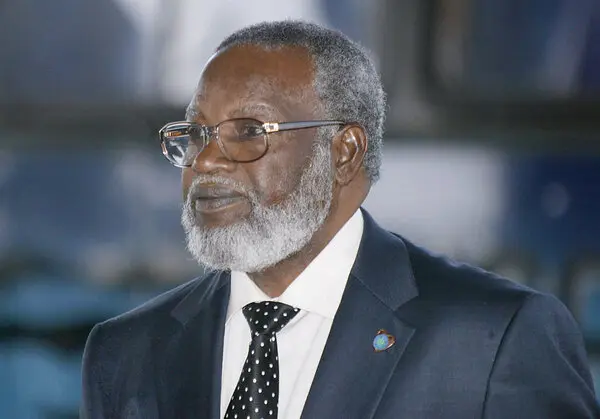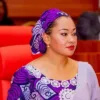Namibia’s founding father, Sam Nujoma, who led the country’s fight for independence from South Africa, has passed away at the age of 95, the presidency announced on Saturday.
Nujoma had been hospitalized for the past three weeks, battling an illness from which he could not recover, according to President Nangolo Mbumba, who confirmed the news in a statement released on Sunday. Mbumba expressed his “utmost sorrow and sadness” in announcing the passing of the “revered freedom fighter and revolutionary leader.”
“Our Founding Father lived a long and impactful life, exceptionally serving the people of his beloved country,” Mbumba added.
Born into a poor farming family from the Ovambo tribe, Nujoma was the eldest of 10 children. In 1949, he worked as a railway sweeper near Windhoek while attending night classes. It was during this time that he met Herero tribal chief Hosea Kutako, a key figure in the campaign against apartheid rule in Namibia (then South West Africa). Kutako became Nujoma’s mentor, guiding him as he became politically active among black workers resisting forced relocation by the government in the late 1950s.
In 1960, at Kutako’s urging, Nujoma went into exile, leaving behind his wife and four children. That same year, he was elected president of the South West Africa People’s Organization (SWAPO), traveling across the globe to garner international support for the independence movement. SWAPO launched an armed struggle in 1966 after South Africa defied a United Nations mandate to relinquish control over the former German colony, citing the need to prevent communism from spreading in Africa.
Namibia finally achieved independence in 1990, one of the last African nations to do so. Nujoma won the country’s first democratic elections that year and served three terms as president, overseeing a period of political stability and economic growth.
While his leadership on AIDS policy earned some international praise, Nujoma also faced criticism for refusing to rehabilitate several hundred former members of the SWAPO liberation movement, who were held as “spies” by apartheid South Africa in Angola. His controversial stance on homosexuality, calling it “madness,” and his threats to arrest or deport gay and lesbian individuals also sparked backlash.
In 2005, Nujoma stepped down from the presidency, handing over power to his handpicked successor, Hifikepunye Pohamba, though he remained a significant political figure for years. He officially retired from politics in 2007.
President Mbumba honored Nujoma’s lasting influence, saying, “He inspired us to rise to our feet and become masters of this vast land of our ancestors.” President-elect Netumbo Nandi-Ndaitwah praised his “visionary leadership and dedication to liberation and nation-building,” noting that Nujoma laid the foundation for a free and united Namibia.
“Let us honor his legacy by upholding resilience, solidarity, and selfless service,” Nandi-Ndaitwah said ahead of her inauguration next month.
AFP


